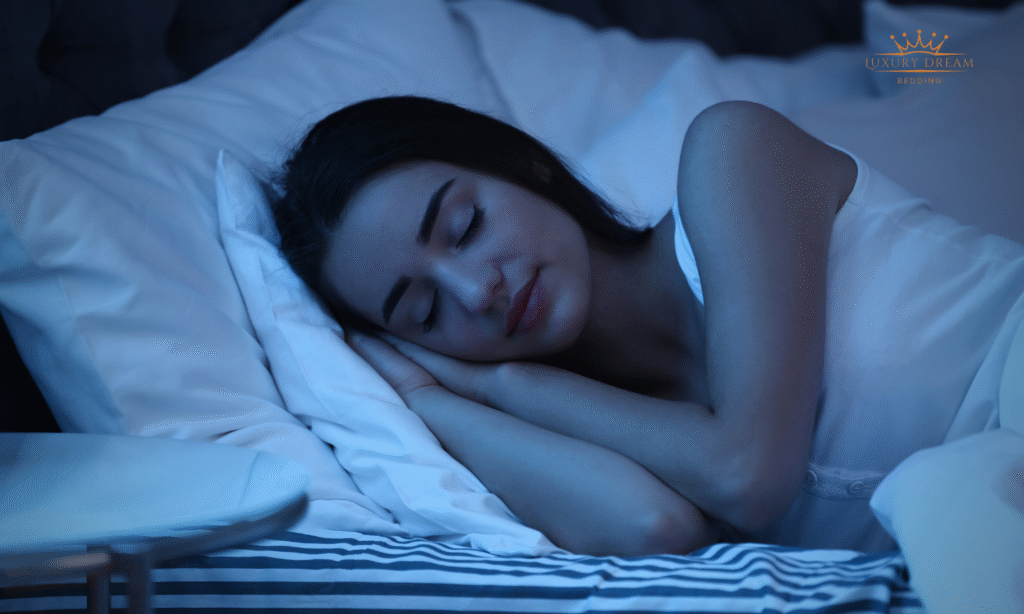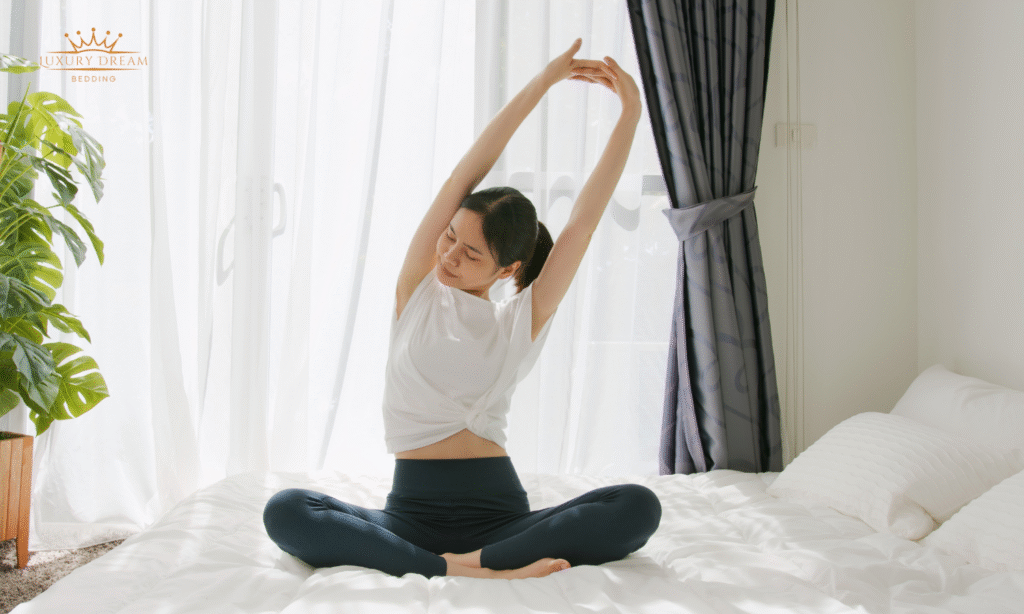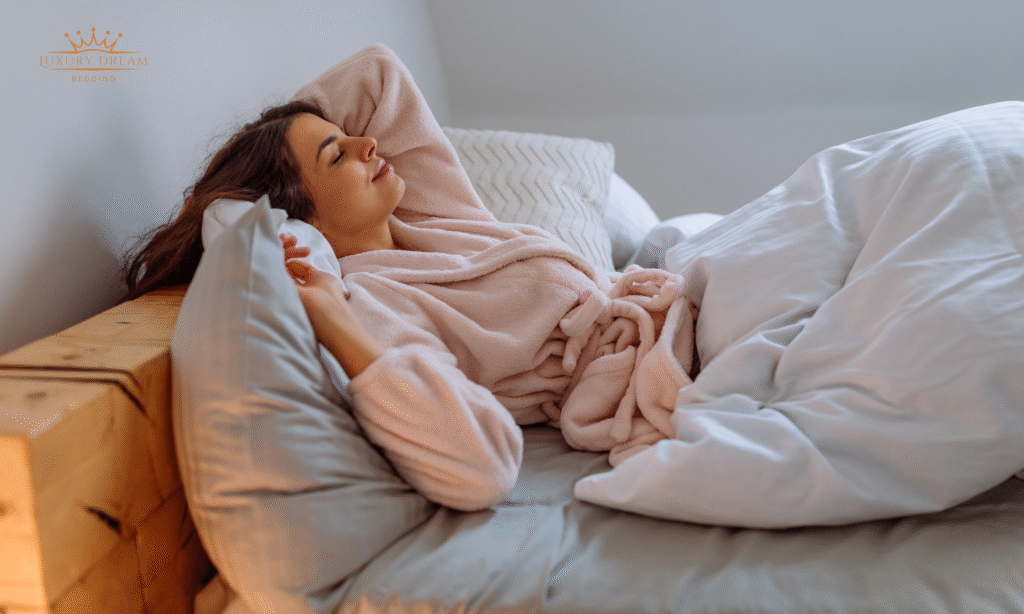Getting quality sleep is essential for your overall health and emotional well-being. But for many, falling asleep easily is a daily struggle—leading to fatigue, irritability, and poor productivity. The good news? Just a few small lifestyle changes can significantly improve your sleep quality and help you fall asleep more easily.
Let’s explore 6 practical habits that can transform your nights, starting today.
1. Build a consistent sleep schedule

If you’re aiming to fall asleep easily, maintaining a regular sleep routine is a must. A consistent schedule trains your body’s internal clock, helping you drift off naturally at the right time.
How to do it:
- Set a fixed bedtime and wake-up time, aiming for 7–8 hours of sleep each night.
- Stick to this routine every day—including weekends.
- Use alarms or reminders to help you build consistency.
Once your body adapts to this rhythm, you’ll start to feel sleepy at the same time each night—without having to force it.
2. Turn your bedroom into a sleep sanctuary

Your sleep environment plays a vital role in how quickly you fall asleep. A calm, quiet, and cozy space can make a big difference.
Tips to optimize your room:
- Use blackout curtains or an eye mask to block unwanted light.
- Keep the temperature cool—around 18–22°C (64–72°F) is ideal.
- Invest in quality bedding for proper support and comfort.
- Try a white noise machine or nature sounds to minimize outside noise.
- Keep electronics out of the bedroom to avoid blue light disruption.
Your bedroom should signal “rest” to your brain, not “activity.”
3. Watch what you eat and drink
Your diet has a direct impact on how easily you fall asleep. A few smart adjustments can work wonders.
Try this:
- Avoid caffeine (coffee, tea, energy drinks) at least 6 hours before bedtime.
- Limit heavy, spicy, or fried foods in the evening to prevent indigestion.
- Add sleep-friendly foods like kiwi, almonds, or a glass of warm milk to your evening menu.
- Stay well-hydrated during the day but reduce fluid intake at night to avoid midnight trips to the bathroom.
A mindful approach to nutrition can be a game-changer for restful sleep.
4. Relax your body and mind before bed

Stress is a major barrier to falling asleep. A calm mind and relaxed body signal your system that it’s time to rest.
Relaxation techniques to try:
- Meditate or practice slow, deep breathing for 5–10 minutes.
- Listen to soft music or read a light book.
- Do a few gentle yoga poses to loosen up muscles.
- Establish a wind-down ritual like sipping chamomile tea or soaking your feet in warm water.
These activities help shift your body from alert mode to rest mode—naturally and effectively.
5. Cut the blue light before bed
Blue light from your phone, computer, or TV can interfere with melatonin production, making it harder to fall asleep easily.
What you can do:
- Stop using digital devices at least 1–2 hours before bed.
- Enable night mode or blue-light filters on screens.
- Replace screen time with journaling or casual conversation.
Reducing blue light exposure doesn’t just improve sleep—it also benefits eye health and mental clarity.
6. Move your body regularly

Physical activity helps regulate your sleep-wake cycle and reduces anxiety—both of which make it easier to fall asleep.
Keep in mind:
- Aim for at least 30 minutes of exercise daily (walking, light jogging, yoga, or gym workouts).
- Avoid intense workouts close to bedtime, which can keep you alert.
- Mornings or early evenings are best for exercise that supports sleep.
By staying active during the day, your body is more likely to welcome rest at night.
Improving your sleep doesn’t always require drastic changes. With just a few mindful adjustments—like keeping a consistent sleep schedule, creating a relaxing environment, eating smart, and reducing stress—you’ll notice it’s much easier to fall asleep naturally and deeply.
A good night’s sleep isn’t just about resting—it’s the foundation for a healthier, more energetic life. Try implementing one or two of these changes today and feel the difference. If sleep problems persist, don’t hesitate to consult a sleep specialist for further guidance.
